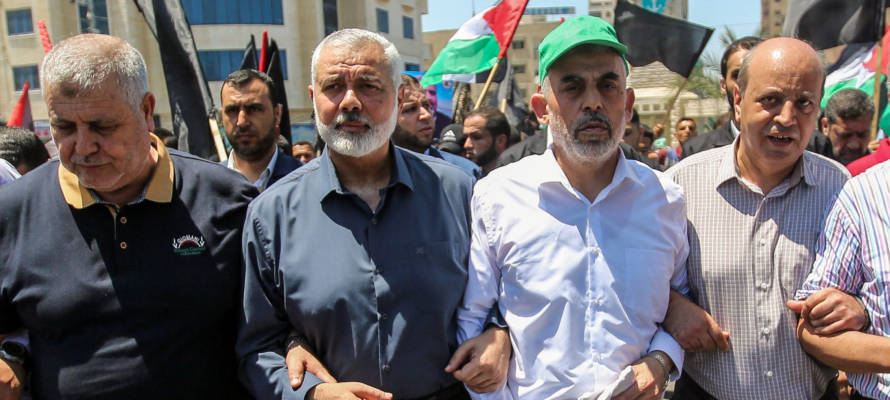Over the weekend, Doha put pressure on Hamas officials saying they would be expelled from the country if no hostage deal was made.
By Shula Rosen
Despite an impasse in the hostage release deal and the failure to secure an agreement before Ramadan, an Arab official reports that Egyptian and Qatari mediators have made some progress in convincing Hamas to soften its demands.
After seeming willing to compromise and agree to the 6-week pause in fighting and release of women, elderly, and ill Israeli hostages, Hamas reverted to its earlier demand of a full ceasefire, terms Israel would not accept.
However, an Arab source told Times of Israel that after Doha placed considerable pressure on Hamas by telling its leaders they would be expelled from the country if no deal was made, the terror group seems more likely to agree to a deal.
A senior Hamas official told Al Arabiya that the terror group may agree to a modified version of the Paris framework hostage deal, although Hamas later released a statement denying this.
The back-and-forth in messaging from Hamas may stem from a conflict between Ismail Haniyeh, who lives in Qatar and October 7th mastermind Yahya Sinwar.
According to Arab media, Haniyeh was more amenable to an agreement and may feel the pressure from Doha since he lives in Qatar compared to Sinwar, who is believed to be hiding in Gaza and takes a hard-line position.
In addition, reports also indicate that the October 7th massacre was planned and known to only Mohammed and Yahya Sinwar, Mohammed Deif, and Marwan Issa with the contingent of Hamas based in Qatar finding out about the invasion only a few hours before it happened.
Marwan Issa was thought to have been killed earlier in the week in an IDF strike.
The framework deal negotiated in Paris by US, Israeli, Egyptian, and Qatari officials involves three phases.
In the first phase, 40 female, elderly, and ill and injured hostages would be released corresponding with a 6-week pause in fighting and the release of Palestinian prisoners.
Soldiers would be released in the second phase and the third, the bodies of hostages and soldiers would be handed over to Israel.
